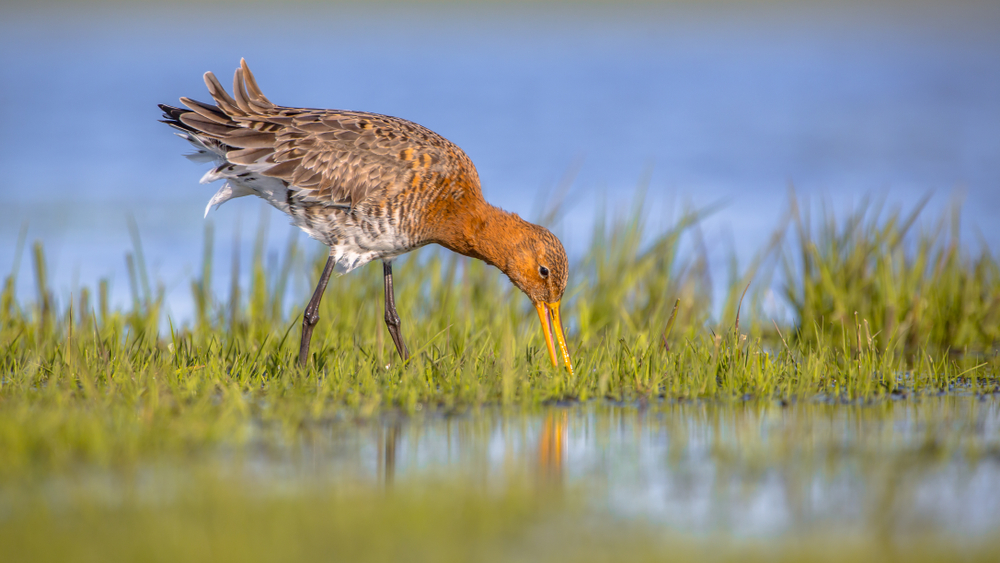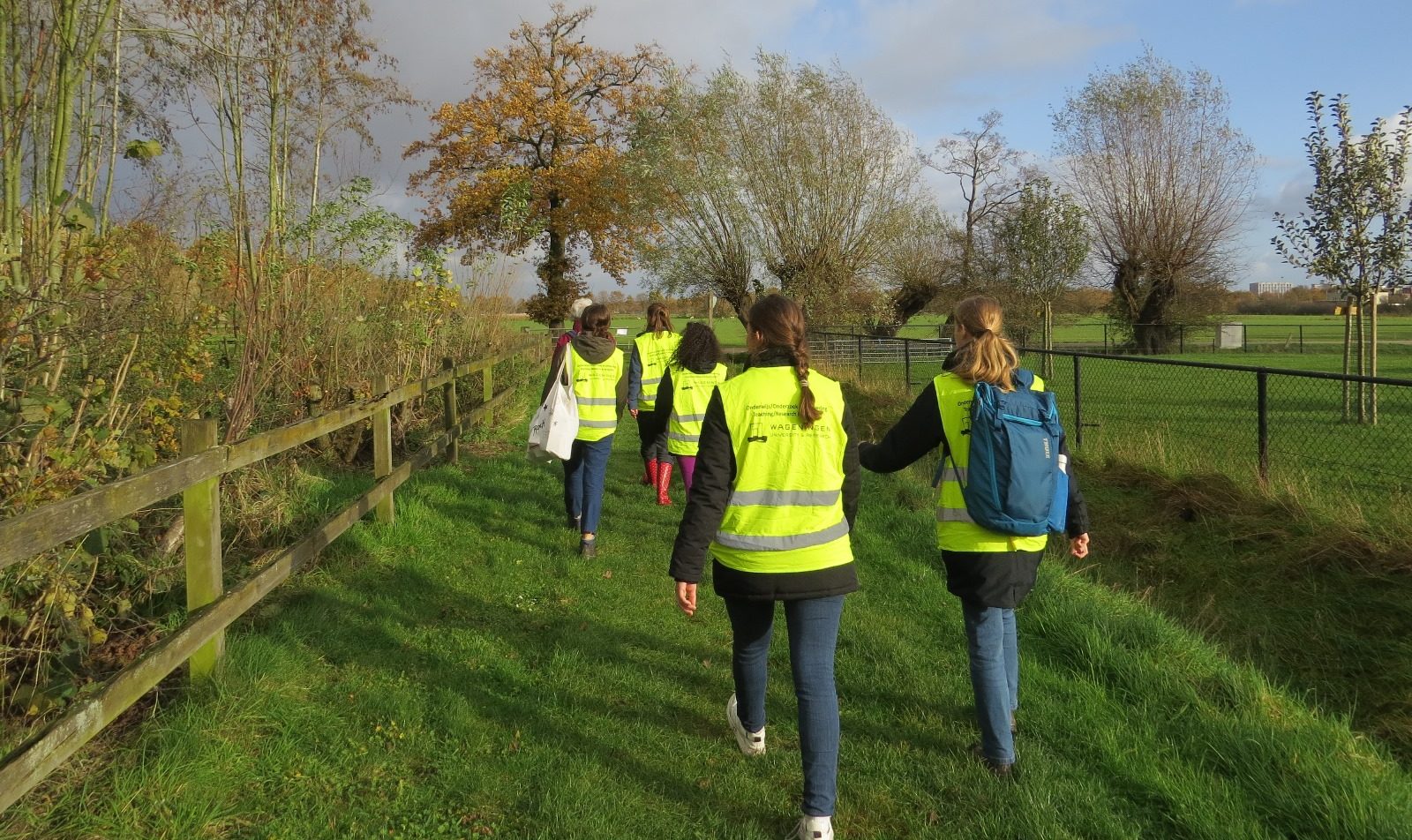Over the past twenty years, the Netherlands has invested more and more money in protecting black-tailed godwits, but in the meantime the number of black-tailed godwits has dropped by 50 per cent to 30,000 pairs.
This was determined by the Netherlands Court of Audit on 14 December. A group of Wageningen students laid the foundation for this report in 2019 during the Academic Consultancy Training (ACT) course, according to Ernst Bos of the Court of Audit. ‘They have laid a good foundation.’
Before Bos joined the Court of Audit, he worked at Wageningen Economic Research in The Hague, so he knew how to get the university involved. In 2019, this resulted in an ACT assignment for six Wageningen students. Five were studying Biology, and one was studying Forest and Nature Management. They conducted a literature study and had interviews about which forms of meadow bird management are successful and which are not.
Puddle-swamp
This showed that marking and protecting the nests was not very successful. Two other control measures did bear fruit: raising the water level on farmland and constructing ditches to create a puddle-swamp-grassland. Further research by the Court of Audit showed that these two favourable conditions for the black-tailed godwit were barely provided by the farmers.
‘We have summarised a lot of literature research, but also talked to many parties, such as the bird protection authority and farmers,’ says Bernice Goffin, one of the students. ‘We wanted to look at meadow bird management from all perspectives. We also visited an agricultural collective in Eemland, one of the few areas where the black-tailed godwit is doing well. That gave us perspective on which approach by farmers is successful.’
Foxes
While the funding for meadow bird management grew to more than 30 million euros per year, the Court of Audit concluded that there was no effective black-tailed godwit protection. Only in 2 per cent of the cases did the funding lead to effective wetting measures for the black-tailed godwit. ‘The policy was not effective,’ concludes Bert Bakker of the Court of Audit. He believes that the scheme should be changed. ‘Farmers will not voluntarily flood their land; it will cost them money.’
Meanwhile, wet meadows could solve another problem for the black-tailed godwit: predation. Foxes in particular eat a lot of black-tailed godwit eggs. ‘In the past, foxes mainly used to live on the sandy soils, but the drainage has made the meadow areas attractive for them,’ says Bos. ‘If that area gets wetter, it will be harder for them to dig a burrow and they will move away.’
Goffin has now graduated, but is still working on meadow birds. She now works at the Sovon Dutch Centre for Field Ornithology, the association that takes censuses of bird populations, where she coordinates the monitoring of farmland birds.

 Photo Shutterstock
Photo Shutterstock 

